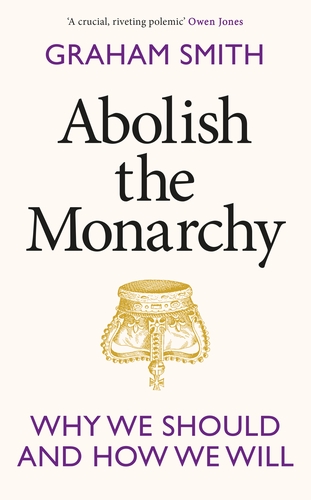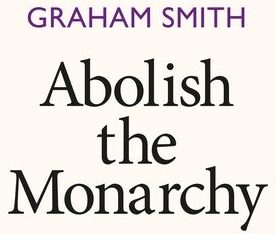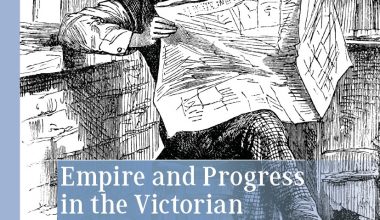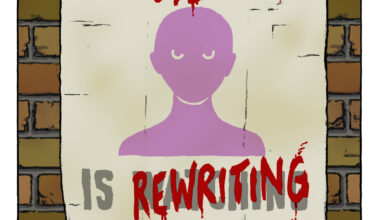
During the coronation of King Charles III, the Metropolitan Police arrested 64 people, most of whom they claimed were there to disrupt the inauguration of our new head of state. Six of these were members of the group Republic, which seeks to abolish the monarchy. They were detained for 16 hours.
What terrible disruption did these nefarious republicans have in mind? Were they planning to plant bombs in letterboxes? Were they going to throw paint at the King’s golden carriage? No. They were there to hold up some placards in protest against the institution of monarchy. They liaised with the Met for months before the coronation and, so far as we know, had no plans to do anything seriously disruptive, let alone illegal.
The Republic protesters were arrested because the police suspected they were going to ‘lock-on’ to objects so that they could not be easily removed. This power was given to the police by the absurd and draconian Public Order Act 2023—which was passed shortly before the coronation, perhaps not so incidentally.
The arrests were an affront to the very idea of British liberty. Graham Smith, the head of Republic, has denied that he and his fellow protesters had any equipment which would have allowed them to attach themselves to anything. But even if they did, they would have simply been victims of legal rather than illegal illiberalism.
Worse, the coronation arrests form part of a pattern. At the King’s Accession Proclamation in Oxford last September, one man was arrested for shouting three words: ‘Who elected him?’ Not long afterward, in London, another man was threatened with arrest for walking while holding a blank sheet of paper: he was told by an officer that he would probably be arrested if he dared to write ‘Not my king’ on it.
Meanwhile, King Charles III, the supposed defender of our constitution and our liberties, has been silent throughout it all. Is not the monarch, symbolically at least, supposed to be the ultimate guarantor of our freedom?
Enter Graham Smith once more, who, fresh from detention, has recently released a book making the case against the monarchy and for a republic. In writing Abolish the Monarchy: Why We Should and How We Will, Smith has done all republicans a great favour: here, in one slim volume, is the ultimate knockdown of the royals, which shreds every one of the usual monarchist arguments and presents an inspiring vision of a future British Republic.
Smith’s book is tightly argued and very well-researched: a testament to his decades of republican activism. Every monarchist should read it. If they remain unconvinced upon closing it, they either have a brilliant case for monarchy that has yet to be made or their brains have simply gone so soft from Windsor worship that they are unable to change their minds.
Most of the arguments Smith presents will not be new to staunch republicans like me, but they are argued so well and backed up so strongly that one envies his knowledge and skill. Even one well-versed in the perfidy of the Windsors might discover new lows. Did you know, for example, that, in the 1960s, the late Queen Elizabeth II successfully lobbied for the royal household to be exempt from race discrimination laws and that this exemption still stands today?
Not that Abolish the Monarchy is merely a personal attack on the royals, though there is plenty of that. It is, fundamentally, a book about our constitution and our principles. Smith argues that the monarchy is the source of many of our political woes, not because the monarch has day-to-day political power, but because the near-limitless power of the Crown is now invested in the Prime Minister:
‘This idea of Britain’s parliamentary democracy as the blueprint the world has taken to its heart, of Britain as one of the oldest, most stable democracies in the world, is founded on a bargain that has suited the interests of both the royals and the political classes alike. The reality is somewhat different: a parliament that has stumbled from one reform to the next, begrudgingly moving on the issue of suffrage while slowly centralizing power in the hands of the House of Commons, and then concentrating power further into Downing Street. Simply put, who has power and why in Britain, is a matter of historical contingency. We could do a lot better.’
This centralisation of power, and the powerlessness of our head of state in the face of it, is one of Smith’s favourite themes. Without an elected head of state and a written constitution, we are left at the mercy of parliamentary sovereignty—which in practice means the supremacy of the government. There is almost nothing stopping the Prime Minister of the day from legislating for whatever they wish, so long as they have an unassailable parliamentary majority. And this is not even to mention the sweeping powers, not subject to any sort of democratic process, afforded to the Prime Minister by the royal prerogative and the Privy Council.
Of course, we are unlikely to become a dictatorship, as Smith acknowledges. We have a strong liberal democratic culture despite the flaws in our constitution. But we would be better off with proper constitutional guarantees of our liberties, rather than trusting their safekeeping to Prime Ministers with monarchical powers. And these flaws can still threaten our democracy even if we never become a full-blown authoritarian state—think, for example, of the Queen’s helplessness in the face of Boris Johnson’s 2019 prorogation of Parliament, which the Supreme Court held to be unlawful.
Another of Smith’s most important points is that Britain’s transformation into a democracy is incomplete. All that we have gained over the centuries has had to be wrested away from the clutches of monarchs and politicians, and our liberal culture owes little to them – least of all to the monarchs. All we lack now is a properly democratic constitutional system. A liberal democratic culture without a written liberal democratic constitution and all the structures that flow from such a constitution is one always at the mercy of the dishonest and the mendacious, just as a written constitution is hardly worth the paper it is written on if there is no democratic culture in place to uphold its spirit. Right now, we have one, but not the other.
But what if we had both? What if we also had a written constitution, a fully democratic parliament, and an elected head of state—that is, what if we had a secular democratic parliamentary republic?
Would Britain be soulless? Would it be (to caricature the monarchist position) just another boring country? The answer to both questions is no. We would still have our history and our culture, and we would have finally fulfilled the promise of our long and honourable democratic tradition.
No president would be perfect, but they would be accountable, and they would represent us in a way no monarch ever could. Personally, I would prefer a head of state who could effectively enforce a written constitution and bravely lead the way in defending liberal values. Think of Václav Havel and Mary Robinson, two presidents who proudly supported Salman Rushdie in the 1990s while our own head of state, the great champion of our vaunted liberties, was silent. Our monarchs seem to have spent more time secretly lobbying for tax exemptions than standing up for liberty.
If there is one criticism I would make of Abolish the Monarchy, it is that it is at times too tame, too moderate. This is part of Republic’s strategy to widen its appeal, but it does a disservice to the genuine radicalism at the heart of the republican position. This is why Abolish the Monarchy does not quite fit into the great British pamphleteering tradition epitomised by Thomas Paine.
Certainly, Smith is right that demanding a British Republic is not to advocate a replay of the French Revolution, and that we already have most of the pieces in place to create a democratic parliamentary republic. But there is something revolutionary about the spirit of republicanism. As he points out, republicanism is essentially the demand for a true liberal democracy: ‘[republicanism is about] more than replacing one head of state with another—it’s about rebalancing power between government, Parliament, and people. … The challenge is to take what we have and make it democratic, top to bottom.’ Republicans should not be so coy about the radicalism of this project.
The monarchy is by definition undemocratic, if not anti-democratic, as well as sectarian and secretive. Almost all the members of the Royal Family are, in this republican’s view at least, negligible human beings. If the royals are stunted by their upbringing, a republic would set not only us but them free, too. For republicans, the Crown is not the bedrock of our liberties, but rather the fount of all that is rotten and fetid in our politics. The constitutional monarchy is an insult to the best of our history and culture. In short: bring on the British Republic.
Graham Smith, Abolish the Monarchy: Why We Should and How We Will, published by Penguin, 1 June 2023.
See also: The Freethinker and early republicanism: the letter by a ‘librarian from Colchester’ that led to the formation of Republic
Graham Smith (not that type of republican), interview on the National Secular Society podcast.
Enjoy this article? Subscribe to our free fortnightly newsletter for the latest updates on freethought. If you can, please consider making a donation to support our work into the future.









4 comments
Great review and I particularly enjoyed the reference to Thomas Paine “This is why Abolish the Monarchy does not quite fit into the great British pamphleteering tradition epitomised by Thomas Paine.”
As a Dutchman I can’t feel smug because annoyingly we are saddled with a monarchy too although our royals keep a much lower profile with less pomp and circumstance. It would be splendid if the British version would get on their bikes as well and ride off into the sunset never to reappear.
Interesting, but I’m afraid I cannot agree. It may seem counter-intuitive, but constitutional monarchies do seem to work and deliver everything a decent society should – stability, prosperity, tolerance, security, liberal democracy, freedom of expression. The best societies in the world today are therefore: Sweden, Denmark, Norway, the UK, the Netherlands, Belgium, modern Spain and one or two smaller European states. Russia abolished its monarchy and has never got beyond brutality and oppression. France is a powder keg. Hungary, Poland and Italy have slid into the hands of the far right. So, constitutional monarchy wins!
A splendid review of a splendid book. The truth is that monarchies were established in the first place by war and conquest rather than through the consent of the populations they reign over. They justify their position of privilege in the only way they can, through religion. Hence anointment with holy oils at the coronation ceremony. How ludicrous, or in the words of at least one protester’s banner at the coronation, “Isn’t this all a bit silly?” This is the ultimate religious privilege is it not? Assuming that to be the case why is it that the UK’s secularist and humanist organisations are not avowedly republican?
One aspect of monarchy that seems to be generally ignored is the misery it inflicts on royalty themselves. Witness current court cases.
Your email address will not be published. Comments are subject to our Community Guidelines. Required fields are marked *
Donate